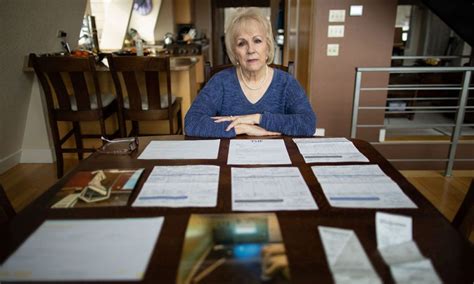
Marjorie Taylor Greene sparked controversy after suggesting that a teenager detained by Immigration and Customs Enforcement (ICE) would be “thriving in Mexico.” The Georgia congresswoman made the remark in response to reports about the teen’s detention, drawing criticism from those who argue it minimizes the challenges faced by asylum seekers and immigrants.
Representative Marjorie Taylor Greene has ignited controversy with her recent comments regarding a teenager currently detained by U.S. Immigration and Customs Enforcement (ICE). Greene suggested that the teen would be “thriving in Mexico,” a statement that has drawn sharp criticism from various quarters, including immigration advocates and fellow politicians. The remarks, made in response to reports highlighting the teen’s detention and circumstances, have been widely interpreted as dismissive of the complex realities and potential dangers faced by asylum seekers and immigrants, particularly unaccompanied minors.
Greene’s statement, amplified through social media and various news outlets, has quickly become a focal point in the ongoing debate surrounding U.S. immigration policies, border security, and the treatment of individuals seeking refuge or better opportunities in the United States. Critics argue that her comments reflect a broader insensitivity towards the plight of vulnerable populations and perpetuate harmful stereotypes about Mexico and its capacity to provide adequate support and opportunities for young people.
The congresswoman’s remarks came amid heightened scrutiny of ICE’s detention practices, particularly concerning the treatment of minors and families. Advocates have long raised concerns about the conditions within detention facilities, the potential for trauma and abuse, and the legal and ethical implications of holding individuals, especially children, for extended periods. Greene’s suggestion that the detained teen would be better off in Mexico has been seen as an attempt to deflect attention from these issues and to justify the current administration’s hardline stance on immigration.
“She would be thriving in Mexico,” Greene stated, as reported by multiple news sources. This assertion has been met with considerable backlash, with many pointing out the potential dangers and lack of opportunities that could await a young person in Mexico, particularly one without family or support networks.
The controversy surrounding Greene’s comments underscores the deep divisions and emotional intensity that characterize the immigration debate in the United States. While some defend her remarks as a legitimate expression of concern about border security and the rule of law, others condemn them as insensitive, misinformed, and potentially harmful. The incident serves as a reminder of the need for nuanced and compassionate dialogue on immigration issues, as well as the importance of holding elected officials accountable for their words and actions.
Background and Context
Marjorie Taylor Greene, a Republican representing Georgia’s 14th congressional district, has established a reputation for making controversial and often inflammatory statements on a range of issues, including immigration. Her views on immigration are generally aligned with a hardline stance, emphasizing border security, stricter enforcement of existing laws, and limitations on pathways to citizenship. She has been a vocal critic of the Biden administration’s immigration policies, which she argues are too lenient and encourage illegal immigration.
The context surrounding Greene’s comments is also shaped by the broader political and social landscape in the United States. Immigration has been a highly contentious issue for decades, with deep divisions between those who favor more restrictive policies and those who advocate for comprehensive reform. The issue has become even more polarized in recent years, fueled by concerns about border security, economic competition, and cultural identity.
ICE’s detention practices have also been a subject of intense scrutiny. The agency is responsible for enforcing immigration laws within the United States, including detaining and deporting individuals who are in violation of those laws. However, ICE has faced criticism for its treatment of detainees, particularly children and families. Concerns have been raised about the conditions in detention facilities, the lack of due process protections, and the potential for abuse and trauma.
Reactions and Responses
Greene’s comments about the detained teenager have elicited a wide range of reactions. Immigration advocates have condemned her remarks as insensitive, misinformed, and harmful. They argue that her suggestion that the teen would be better off in Mexico ignores the complex realities faced by asylum seekers and immigrants, many of whom are fleeing violence, persecution, or poverty in their home countries.
“To say that a child would be ‘thriving’ in a country they fled is deeply insensitive and shows a lack of understanding of the trauma these children endure,” said a representative from a leading immigration advocacy group. “We need to be providing support and protection to vulnerable children, not making flippant and dismissive remarks about their situation.”
Other politicians have also weighed in on the controversy. Some have defended Greene’s right to express her views, arguing that she is simply voicing concerns about border security and the need to enforce immigration laws. However, others have criticized her comments as divisive and harmful, accusing her of perpetuating negative stereotypes about immigrants and Mexico.
“Representative Greene’s comments are not only insensitive but also deeply irresponsible,” said a Democratic member of Congress. “They contribute to a climate of fear and hostility towards immigrants, and they undermine our efforts to create a more just and humane immigration system.”
The Mexican government has not yet issued an official response to Greene’s comments. However, some Mexican officials have privately expressed concern about the implications of her remarks, particularly in light of the ongoing efforts to address migration flows and security challenges in the region.
Analysis and Implications
Greene’s comments raise several important questions about the role of elected officials in shaping public discourse on immigration. Her remarks highlight the potential for inflammatory rhetoric to fuel division and animosity, and they underscore the need for more nuanced and compassionate dialogue on complex policy issues.
The incident also raises concerns about the impact of political rhetoric on the lives of vulnerable individuals. When elected officials make disparaging remarks about immigrants or asylum seekers, it can contribute to a climate of fear and discrimination, making it more difficult for these individuals to access the support and protection they need.
Furthermore, Greene’s comments highlight the ongoing challenges in addressing the root causes of migration. Many people choose to leave their home countries because of violence, poverty, or lack of opportunity. Addressing these underlying factors is essential to creating a more sustainable and humane approach to immigration.
The controversy surrounding Greene’s remarks is likely to continue to fuel debate about immigration policy in the United States. It remains to be seen whether the incident will lead to any concrete changes in policy or practice, but it serves as a reminder of the importance of holding elected officials accountable for their words and actions. It also calls for the need for informed, factual and respectful discussions about immigration.
Deeper Examination of ICE Detention Practices
The controversy surrounding Greene’s comments has also brought renewed attention to ICE’s detention practices. ICE operates a vast network of detention facilities across the United States, where it holds individuals who are awaiting deportation or other immigration proceedings. These facilities have been the subject of numerous complaints and investigations, with allegations of overcrowding, inadequate medical care, and abuse.
One of the most pressing concerns is the detention of children and families. ICE has faced criticism for its policy of detaining families who are seeking asylum, with advocates arguing that this practice is harmful to children and violates international human rights standards. Studies have shown that children who are detained experience higher rates of anxiety, depression, and post-traumatic stress disorder.
The legal basis for ICE’s detention authority is also a subject of debate. While the agency argues that it has broad authority to detain individuals who are in violation of immigration laws, some legal scholars argue that this authority is limited by constitutional protections, such as the right to due process.
In recent years, there have been several legal challenges to ICE’s detention practices. Some courts have ruled that ICE must provide more due process protections to detainees, while others have ordered the agency to release individuals who are being held in inhumane conditions.
The Situation in Mexico: Opportunities and Challenges
Greene’s assertion that the detained teenager would be “thriving in Mexico” is a gross oversimplification of the complex realities faced by many young people in that country. While Mexico has made significant progress in recent decades in terms of economic development and social progress, it still faces significant challenges, including poverty, violence, and inequality.
According to data from the World Bank, approximately 40% of the Mexican population lives in poverty. This means that millions of people lack access to basic necessities such as food, housing, and healthcare. Poverty is particularly prevalent in rural areas and among indigenous communities.
Mexico also faces significant challenges related to violence and crime. The country has been plagued by drug-related violence for decades, with cartels and other criminal organizations vying for control of territory and resources. This violence has had a devastating impact on communities across Mexico, leading to displacement, trauma, and loss of life.
While Mexico does offer opportunities for young people, particularly in education and employment, these opportunities are not always accessible to everyone. Many young people in Mexico face barriers such as poverty, discrimination, and lack of access to quality education.
It is also important to note that Mexico is not always a safe place for asylum seekers and immigrants. Many individuals who are deported to Mexico from the United States face violence, discrimination, and extortion. Some are even targeted by criminal organizations.
The Role of Media in Shaping the Narrative
The media plays a crucial role in shaping public perceptions of immigration and related issues. The way that news outlets frame and report on immigration can have a significant impact on public opinion and policy debates.
In some cases, the media can contribute to negative stereotypes about immigrants by focusing on crime or other negative behaviors. However, the media can also play a positive role by highlighting the contributions of immigrants to society and by providing a platform for their voices.
It is important for media outlets to strive for accuracy, fairness, and balance in their coverage of immigration issues. This means avoiding sensationalism, providing context and background information, and seeking out diverse perspectives.
The way that the media reports on comments made by elected officials can also have a significant impact. When elected officials make inflammatory or misleading statements, it is important for the media to hold them accountable and to provide accurate information to the public.
The Potential for Bipartisan Solutions
Despite the deep divisions on immigration, there is potential for bipartisan solutions. Many Americans agree that the current immigration system is broken and needs to be reformed. There is also broad support for securing the border, addressing the root causes of migration, and providing a pathway to citizenship for undocumented immigrants who are already living in the United States.
Finding common ground on these issues will require compromise and a willingness to work together. It will also require a commitment to facts and evidence-based policymaking.
Some possible areas for bipartisan agreement include:
- Investing in border security technology and infrastructure
- Strengthening partnerships with Mexico and other countries in the region to address the root causes of migration
- Creating a more efficient and transparent system for processing asylum claims
- Expanding opportunities for legal immigration, including skilled workers and family-based visas
- Providing a pathway to citizenship for undocumented immigrants who meet certain requirements, such as paying taxes and passing a background check
Achieving meaningful immigration reform will require leadership from both Democrats and Republicans. It will also require a willingness to listen to the concerns of all stakeholders, including immigrants, businesses, and communities.
The Importance of Compassion and Empathy
Ultimately, the debate over immigration is about more than just policy and politics. It is about the lives and futures of millions of people. It is important to approach this issue with compassion and empathy, recognizing that immigrants are human beings with hopes, dreams, and aspirations.
Many immigrants have overcome incredible obstacles to come to the United States. They have risked their lives, left their families, and faced discrimination and hardship. They deserve to be treated with respect and dignity.
When we dehumanize immigrants or treat them as statistics, we lose sight of their humanity. We forget that they are our neighbors, our coworkers, and our friends. We forget that they are making valuable contributions to our society.
By embracing compassion and empathy, we can create a more welcoming and inclusive society for all. We can build a future where everyone has the opportunity to thrive.
Conclusion
Marjorie Taylor Greene’s comments about a detained teenager have sparked a necessary and important conversation about immigration policy and the treatment of vulnerable individuals. While her remarks have been widely criticized as insensitive and misinformed, they have also served as a reminder of the need for more nuanced and compassionate dialogue on this complex issue.
Addressing the challenges of immigration will require a multi-faceted approach that includes securing the border, addressing the root causes of migration, and providing a pathway to citizenship for undocumented immigrants. It will also require a commitment to facts, evidence-based policymaking, and a willingness to work together across party lines.
Most importantly, it will require a commitment to compassion and empathy, recognizing that immigrants are human beings with hopes, dreams, and aspirations. By embracing these values, we can create a more just and humane immigration system for all. The path forward must be rooted in understanding, respect, and a shared commitment to creating a society where everyone has the opportunity to thrive. Ignoring the plight of vulnerable individuals and resorting to divisive rhetoric serves only to undermine the potential for meaningful progress and perpetuate harmful stereotypes.
Frequently Asked Questions (FAQ)
-
What exactly did Marjorie Taylor Greene say about the detained teenager?
Marjorie Taylor Greene stated that the teenager detained by ICE would be “thriving in Mexico.” This comment was made in response to reports about the teen’s detention and has been widely criticized as insensitive and dismissive of the challenges faced by asylum seekers and immigrants.
-
Why is Greene’s comment considered controversial?
The comment is controversial because it is seen as minimizing the potential dangers and lack of opportunities that a young person might face in Mexico, especially without family or support networks. Critics argue it reflects a lack of understanding of the trauma and difficulties faced by asylum seekers and immigrants.
-
What are the main concerns about ICE’s detention practices, particularly concerning minors?
Concerns about ICE’s detention practices include allegations of overcrowding, inadequate medical care, and potential abuse in detention facilities. There are also concerns about the trauma and psychological impact of detention on children, as well as the legal and ethical implications of holding minors for extended periods.
-
What are the main challenges faced by young people in Mexico that contradict Greene’s statement?
Mexico faces significant challenges such as poverty (approximately 40% of the population lives in poverty), violence, crime, and inequality. These issues can limit opportunities for young people, particularly those from marginalized communities, and make it difficult for them to thrive. Additionally, asylum seekers and immigrants in Mexico can face discrimination and violence.
-
What are some potential bipartisan solutions to address immigration issues in the United States?
Potential bipartisan solutions include investing in border security technology, strengthening partnerships with Mexico and other countries to address the root causes of migration, creating a more efficient asylum process, expanding legal immigration opportunities, and providing a pathway to citizenship for undocumented immigrants who meet specific requirements.









